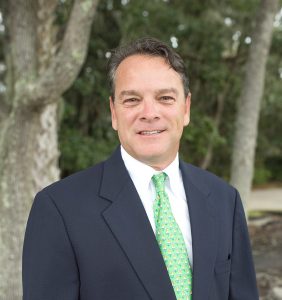Capital markets have been volatile in the past year, and the previous quarter was especially unpredictable. As we move through the fourth quarter, we wanted to break down the key economic stories we are monitoring, along with our perspective on how to navigate this most recent round of volatility. As always, we invite you to connect with our team if you have any questions about the ideas shared or your wealth management strategy.
Update On The Capital Markets
There are a number of contributing factors to the market volatility we witnessed in Q3, but the most significant contributor has been inflation and the steps taken by the Federal Reserve to combat it.
So far this year, the Federal Reserve has raised rates six times and their meeting on November 2nd marked their fourth straight 0.75% increase.[1] These rate increases are in response to decades-high inflation, which was reported at 7.7% in October by the Bureau of Labor Statistics (BLS).[2]
In my 34 years as a financial professional, I’ve seen rapid rate increases and protracted rate increases, but never both at the same time—until now. These aggressive rate increases have been necessary to help combat inflation, but the Fed is walking a fine line: the more aggressive the response, the greater the possibility of the U.S. tipping into a recession. All this uncertainty has greatly contributed to market volatility as capital markets attempt to figure out what all this means, and adjust accordingly.
Going forward, it appears the Fed will continue to tighten policy—i.e., raise interest rates—a couple more times until they see definitive evidence, likely based on three months of core data, that inflation is coming down. And while October’s 7.7% inflation is certainly high by historic standards, the inflation rate was down from 8.2% in September, giving an early indication that inflationary pressures may be starting to ease.[3]
Given the recessionary risks, the Fed will not hike interest rates indiscriminately or indefinitely; at some point they will stop increasing rates. For right now, however, their goal is to put enough pressure on short-term interest rates to curb inflation as quickly as possible. The next two reports from the BLS will be key indications of how higher rates are working to ease inflation. We will continue to monitor Fed policy very closely in the coming weeks and months, and update you as needed.
Implications for Investment Management
When interest rates increase, markets tend to look more favorably at companies that produce real goods and services, that have profits, and that have reasonably good balance sheets. By the same token, the higher cost of capital means that markets are less inclined to favor more speculative companies—which is why the tech sector has been especially hard-hit in recent months.[4]
We firmly believe that, despite any short-term price disruptions or brief downturns, if you’ve invested in high-quality companies that have good, steady business operations, your portfolio will be no worse for wear in the long term. However, that certainly doesn’t mean the current level of market volatility is comfortable.
The challenge for many investors is to stay focused in a volatile market environment. It’s not the bear market that threatens an investor’s ability to reach their long-term investment goals—it’s the investor’s decisions within a bear market that often sabotage them.
Midterm Elections
On November 8th, we had the midterm elections. Democrats retained control of the Senate and Republicans took control of the House of Representatives.[5] Historically, U.S. capital markets have underperformed in the year preceding midterm elections and outperformed the market in the 12-month period after a midterm.[6] This is likely the result of the uncertainty that precedes elections and the degree of certainty which is gained following elections. As we know, the capital markets have performed well under both Democrat and Republican leadership in the Whitehouse and Congress. That is to say: the outcome of the midterm elections will certainly have an impact on our country, but we do not expect the outcomes to influence the long-term trajectory of the U.S. economy or capital markets.
Opportunities in the Current Marketplace
For investors who have cash or bonds coming due, the current market environment may offer good value for stocks. Low interest rates often correlate to higher stock prices: when money is cheap, investors are incentivized to take more risks.[7] Conversely, a high-interest-rate market environment means prices are less likely to be artificially inflated and investors may be able to find equities at reasonable valuations.
In our view, the biggest cloud hanging over equity markets at the moment is the uncertainty surrounding inflation and the economy. When interest rates begin to level off, we should see additional clarity around Fed policy and the economy, which should ease some of those concerns and set the stage for a more positive market environment.
Closing Thoughts
We know it can be challenging to stay focused on the bigger picture, especially during periods of market volatility and economic uncertainty like we are seeing today. We will continue to closely monitor capital markets and any policy developments that may impact your wealth management strategy. Despite the ongoing uncertainty, you can be confident that the team at Sound View will be here to help you and your family navigate this challenging market environment.
ABOUT THE AUTHOR: Kelly Bouchillon, CFP®

Kelly co-founded Sound View Wealth Advisors with the vision of creating a firm that would offer independent financial advice to clients without the biases or bureaucracy found in Wall Street banks. He serves clients by taking a planning-based approach, incorporating decades of experience and in-depth knowledge of trusts and estates.
In 1989, Kelly began his career with Merrill Lynch, where in 1994, he partnered with Emerson Ham to form the Bouchillon, Ham & Dekle Group as a way to better serve clients. This led to a 28-year tenure at Merrill Lynch. Kelly is a Certified Financial Planner™, a designation awarded by the Certified Financial Planning Board of Standards, Inc.
He is also a philanthropist and leader in the community, supporting numerous community organizations, including the Kiwanis Club of Skidaway Island, Savannah Country Day School, Savannah Philharmonic, St. Joseph Candler Foundation, Telfair Museum and Memorial Medical Center. In addition, Kelly has served as committee member for both The Landings Association and The Landings Club. An avid golfer who also enjoys boating and snow skiing, Kelly has four children and lives on Skidaway Island, Savannah, Georgia.
Disclaimer: The information, analysis, and opinions expressed herein are for general and educational purposes only. Nothing contained in this commentary is intended to constitute legal, tax, accounting, securities, or investment advice, nor an opinion regarding the appropriateness of any investment, nor a solicitation of any type. All investments carry a certain risk, and there is no assurance that an investment will provide positive performance over any period of time. An investor may experience loss of principal. Investment decisions should always be made based on the investor’s specific financial needs and objectives, goals, time horizon, and risk tolerance. The asset classes and/or investment strategies described may not be suitable for all investors and investors should consult with an investment advisor to determine the appropriate investment strategy. Information obtained from third party sources are believed to be reliable but not guaranteed. Sound View Wealth Advisors Group, LLC makes no representation regarding the accuracy or completeness of information provided herein. All opinions and views constitute our judgments as of the date of writing and are subject to change at any time without notice.
Certified Financial Planner “CFP”) certificants must pass the comprehensive CFP Certification Examination, pass CFP Board’s Candidate Fitness Standards, agree to abide by CFP Board’s Code of Ethics and Professional Responsibility which puts clients’ interests first and comply with the Financial Planning Practice Standards which spell out what clients should be able to reasonably expect from the financial planning engagement. In addition to completing courses that cover the financial planning topics required for CFP certification, a bachelor’s degree (or higher), or its equivalent (in any discipline, from an accredited college or university) is required to attain CFP certification. The bachelor’s degree requirement is a condition of initial certification; it is not a requirement to be eligible to take the CFP Certification Examination.
[1] Barron’s, The Fed Hikes Rates by 0.75 Point, and Hints at Slower Pace of Increases. (Link)
[2] U.S. Bureau of Labor Statistics, Consumer Price Index (Link)
[3] AP, US consumer inflation eased to 7.7% over past 12 months (Link)
[4] CNBC, Tech stocks just had their worst two-week stretch since the start of the pandemic. (Link)
[5] Politico, 2022 Elections (link)
[6] U.S. Bank, How midterm elections affect the stock market. (Link)
[7] IMF, Low Real Interest Rates Support Asset Prices, But Risks Are Rising. (Link)





